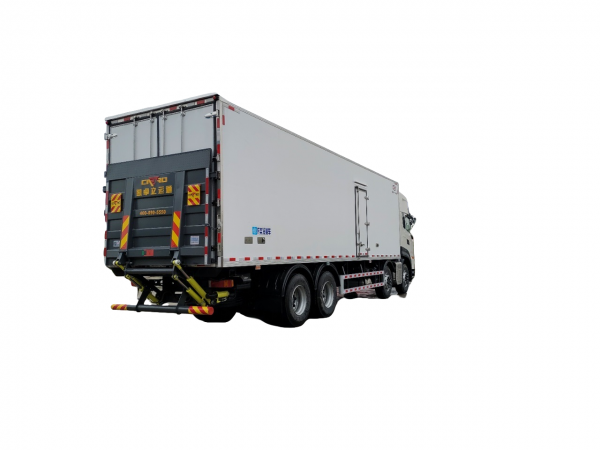Introduction
Work trucks are essential vehicles for businesses and industries that require the transportation of heavy loads. One of the most critical factors to consider when choosing a work truck is its towing capacity. Towing capacity refers to the maximum weight a vehicle can tow safely and efficiently. Understanding get redirected here towing capacity of a work truck is crucial for ensuring safety, efficiency, and compliance with regulations. In this comprehensive guide, we will explore the factors that influence work truck towing capacity and provide tips on how to maximize it.
Factors Affecting Work Truck Towing Capacity
1. Gross Vehicle Weight Rating (GVWR)
The Gross Vehicle Weight Rating (GVWR) is the maximum weight a vehicle can safely carry, including its own weight and the weight of passengers, cargo, and towing equipment. The GVWR is determined by the manufacturer and is a key factor in determining a work truck's towing capacity. Exceeding the GVWR can compromise the vehicle's safety and performance, so it is essential to know this rating when selecting a work truck for towing purposes.
2. Engine Power and Torque
The engine power and torque of a work truck play a significant role in determining its towing capacity. A more powerful engine with higher torque can provide the necessary strength to tow heavy loads efficiently. When choosing a work truck for towing, consider the engine specifications and ensure that they are sufficient for the intended towing tasks.
3. Transmission and Gear Ratios
The transmission and gear ratios of a work truck also influence its towing capacity. Trucks with transmissions designed for towing, such as automatic transmissions with tow/haul modes, can provide better performance and efficiency when towing heavy loads. Additionally, trucks with lower gear ratios are better suited for towing as they provide more power at lower speeds, making it easier to tow heavy loads uphill or on rough terrain.
4. Suspension and Brakes
The suspension and brakes of a work truck are crucial for ensuring safety and stability when towing. Upgraded suspension components, such as heavy-duty springs and shocks, can help support the additional weight of a trailer and cargo, reducing the strain on the vehicle and improving towing performance. Similarly, high-quality brakes, including disc brakes and trailer brake controllers, are essential for safely stopping a work truck and its towed load.
5. Frame and Chassis Strength

The frame and chassis of a work truck provide the structural support necessary for towing heavy loads. Trucks with reinforced frames and chassis are better equipped to handle the stress and strain of towing, ensuring durability and long-term reliability. When choosing a work truck for towing, consider the strength and construction of its frame and chassis to determine its towing capacity.
6. Towing Package and Equipment
Many work trucks come with optional towing packages and equipment that can enhance their towing capacity and performance. These packages may include features such as trailer hitches, towing mirrors, integrated trailer brake controllers, and transmission coolers. Investing in a work truck with a towing package can help maximize its towing capacity and make towing tasks easier and safer.
Tips for Maximizing Work Truck Towing Capacity
1. Know Your Work Truck's Specifications
Before towing any load, make sure you are familiar with your work truck's specifications, including its GVWR, towing capacity, engine power, and transmission capabilities. Understanding these specifications will help you determine the maximum weight you can safely tow and ensure that you do not exceed the vehicle's limits.
2. Distribute Weight Properly
Properly distributing the weight of your trailer and cargo is essential for maintaining stability and control when towing. Make sure that the load is evenly distributed from front to back and side to side to prevent swaying and fishtailing. Avoid overloading the rear of the trailer, as this can cause the work truck to sag and affect its handling.
3. Use the Right Hitch and Coupler
Choosing the right hitch and coupler for your work truck is crucial for safe and efficient towing. Make sure that the hitch and coupler are compatible with your truck's towing capacity and the weight of the trailer. Additionally, use safety chains and breakaway cables to secure the trailer in case of a hitch failure.
4. Check Tire Pressure and Condition
Proper tire maintenance is essential for safe towing. Make sure that your work truck's tires are properly inflated and in good condition before towing a load. Underinflated or worn-out tires can affect the vehicle's handling and braking performance, increasing the risk of accidents when towing heavy loads.
5. Plan Your Route and Driving Strategy
When towing heavy loads, plan your route in advance and choose roads that are suitable for towing. Avoid steep inclines, sharp turns, and rough terrain whenever possible, as these conditions can strain the work truck and make towing more challenging. Additionally, adjust your driving strategy when towing, including maintaining a safe following distance, reducing speed, and braking early to avoid sudden stops.
6. Perform Regular Maintenance
Regular maintenance is essential for maximizing your work truck's towing capacity and ensuring its long-term reliability. Follow the manufacturer's recommended maintenance schedule for servicing the engine, transmission, brakes, and suspension components. Additionally, inspect the trailer hitch, coupler, safety chains, and electrical connections before each towing trip to ensure they are in good working condition.
Conclusion
Work truck towing capacity is a critical consideration for businesses and industries that rely on these vehicles for transporting heavy loads. By understanding the factors that influence towing capacity and following the tips for maximizing it, you can ensure safe, efficient, and reliable towing operations. Whether you are towing equipment, materials, or vehicles, choosing the right work truck with the appropriate towing capacity and equipment is essential for meeting your business's needs and ensuring compliance with regulations. By prioritizing safety, maintenance, and proper towing techniques, you can maximize your work truck's towing capacity and optimize its performance for all your towing tasks.
